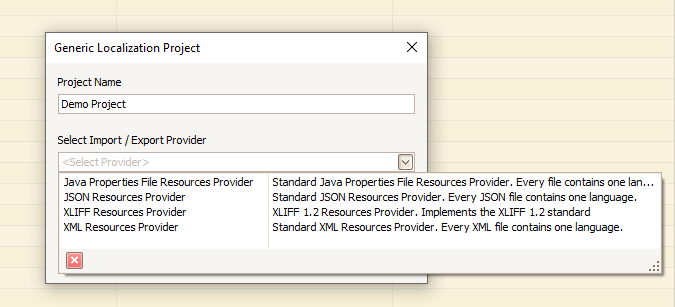Writing a Custom ResourcesProvider
A ResourcesProvider is a plugin for Babylon.NET to read and write string resources from and to the string repository of a software project. Strings generally reside in files but can also reside in a database, in a cloud storage or be kept in some other form. If your project spans several development environments having different localization requirements, a ResourcesProvider can also be used to read and write string resources into several different formats and this way combining all strings into one single Babylon.NET solution. This greatly simplifies localization of complex projects.
The easiest way to develop a new ResourcesProvider is to download the source code from an existing ResourcesProvider and modify it to your needs. To implement the IResourceProvider interface reference the ResourceProvider.dll included in every
Babylon.NET installation.
The ResourcesProvider assembly
also defines the StringResource class which represents one string and
all its translations.
To install a ResourcesProvider simply copy the assembly to the ResourceProviders subfolder of the Babylon.NET installation folder along with all assemblies and configuration files needed.
If you need help developing a ResourcesProvider please don't hesitate to contact us at support@redpin.eu. Too busy to write your own ResourcesProvider? Let us write it for you. Just drop us a few lines with what you need and we will send you a quote.
If you think your ResourcesProvider could be of interest to other developers and are willing to share it (source code must be shared as well) please writes us. If we like your ResourcesProvider and include it in Babylon.NET, we will reward you with a free single user license for Babylon.NET.
Source code available on Github.
